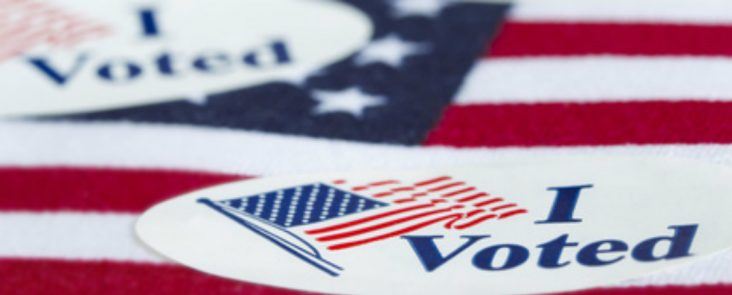Sanders wins in New Hampshire primary with narrow margin over Buttigieg
by February 11, 2020 10:48 pm 469 views

U.S. Sen. Bernie Sanders, I-Vt., won the New Hampshire Democratic primary Tuesday (Feb. 11), the nation’s first primary in the 2020 presidential election cycle. With 25.8% of the vote (with 85% of precincts reporting), Sanders narrowly beat former South Bend, Ind., Mayor Pete Buttigieg who captured 24.4%.
U.S. Sen. Amy Klobuchar, D-Minn., made a strong third-place showing with almost 20% of the vote. Former New York Mayor Mike Bloomberg, a Democratic candidate, was not on the New Hampshire primary ballot. New Hampshire delegates are awarded based on the voting results, with delegates awarded to those who get 15% or more of the vote, meaning only Sanders, Buttigieg and Klobuchar will gain delegates in the Granite State.
With 55% of precincts reporting, President Donald Trump handily won the Republican primary with more than 86% of the vote against former Massachusetts Gov. Bill Weld who had less than 9%.
Following is the vote percentage for the top five Democratic candidates with 85% of precincts reporting.
• U.S. Sen. Bernie Sanders, I-Vt.: 25.8%
• Mayor Pete Buttigieg: 24.4%
• U.S. Sen. Amy Klobuchar, D-Minn.: 19.7%
• U.S. Sen. Elizabeth Warren, D-Mass.: 9.4%
• former Vice President Joe Biden: 8.4%
U.S. Sen. Michael Bennet, D-Colo., and businessman Andrew Yang announced after the New Hampshire polls closed that they were stepping out of the race.
Sanders won the primary in February 2016 with 60.4% of the vote. Hillary Clinton, who would gain the Democratic nomination in 2016, was second with 38% of the vote. A win in New Hampshire is no guarantee of eventual victory. Former Presidents Bill Clinton, George W. Bush and Barack Obama finished second in New Hampshire before winning their respective party nominations and the general election.
The focus for the candidates and their campaigns now turns to the Feb. 22 Nevada primary (36 Democratic delegates), and the Feb. 29 primary in South Carolina (54 Democratic delegates). Some political watchers believe the Democratic candidate field could be narrowed down to three to five after South Carolina. The four February elections account for 155 Democratic delegates.
The Arkansas primary, with its 31 Democratic delegates and 40 GOP delegates, is set for March 3, aka “Super Tuesday.” On that date, 14 states will conduct Democratic and GOP primaries, with 1,339 Democratic delegates up for grabs, including 416 in California and 228 in Texas. To win the nomination, a candidate will need 1,990 delegates. The Democratic National Convention will begin July 13 in Milwaukee, Wisc.
A Talk Business & Politics/Hendrix College Poll posted Tuesday shows a tight race in the Arkansas Democratic primary, with Bloomberg holding a small lead.
